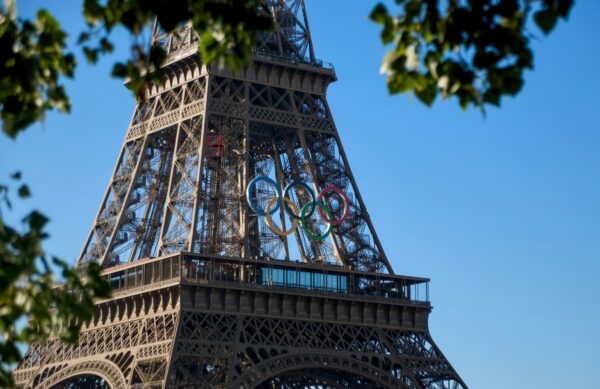After a monumental end to the 2024 Olympics, this year’s Paralympics are set to open in Paris on Wednesday, August 28, and last until September 8. From Egypt’s powerlifting champions to Jordan’s wheelchair basketball stars, these athletes demonstrate resilience, determination, and extraordinary skill. While conflicts around the region continue, the Paralympics provide a platform for athletes who have faced adversity to showcase their abilities while representing their nations, transcending sport to emphasize unity and our shared humanity. Take a look at the record-breaking representation of MENA athletes at the 2024 Paralympics.
Who will be represented at the Paris 2024 Paralympics?
This year’s games aim to create history by hosting the most egalitarian edition ever. With an estimated 4,400 athletes, these games emphasize inclusivity and diversity. When the Paralympics opened in 1960 in Rome, only 45 women competed. During the last Paralympics in Tokyo 2020, 1,846 women competed. This year, that number is projected to be even higher, highlighting the increased gender representation at the competition.
Athletes from 184 nations are anticipated to compete, marking an unprecedented level of global participation. Additionally, Paris 2024 is going to revolutionize Paralympic broadcasting with over 300 hours of live coverage.
Refugee Paralympic Team
The Refugee Paralympic Team (RPT) is a group of athletes who have overcome not only physical challenges but environmental challenges as well to compete at the highest level. They have fled conflict and persecution in their homelands and represent more than 120 million people who have been forcibly displaced worldwide, many of whom are from the MENA region. The RPT was forced to compete in the 2016 Paralympics as an Independent Paralympic Athletes team, initially only consisting of two athletes. In 2020, it returned with six athletes; this year, it is comprised of athletes and a guide runner.
The following two athletes do not bear the flags of their respective countries, but still found a way to compete and achieve their dreams, embodying the very essence of the Paralympic spirit.
- Ibrahim Al Hussein is a Para triathlete from Syria. Al Hussein lost his right foot and parts of his left foot in 2012 during the Syrian civil war. He was a victim of a shell explosion, stepping in to help his friend who was targeted by sniper fire. After fleeing Syria, he found refuge in Greece. Despite living in crowded refugee camps with limited access to training centers, he persevered and is competing on the world stage.
- Hadi Hassanzada is a Para taekwondo athlete born in Afghanistan and raised in Iran. He came from a poor family and growing up outside of his homeland was difficult, especially after the amputation of his right hand. He eventually returned to Afghanistan thinking his country had become peaceful but was forced to flee again after he realized conditions were not safe. Despite leaving the only two homes he knew, he found that “life really only becomes meaningful when you find a way to overcome challenges and there is always a way to achieve happiness and success.”

Key Historic Wins
- Omar Qarada secured Jordan’s first gold medal of the Tokyo 2020 Paralympics. He triumphed in the men’s 49kg weightlifting category, lifting 173kg and defeating his world record-holding opponent, Le Van Cong from Vietnam.
- Sareh Javanmardi of Iran broke both the world record and the Paralympic record at Tokyo 2020 in the 10m air pistol SH1 event with 239.2 points.
- Raoua Tlili of Tunisia won the sixth gold medal of her career after registering a 37.91-meter distance in the discus throw at the Tokyo 2020 Paralympics.
- Ayoub Sadni of Morocco won a gold medal at Tokyo 2020 in the men’s 400m T47 with a time of 47.38 seconds.
- Skander Djamil Athmani of Algeria broke the world record in the men’s 400m T13 event at the Tokyo 2020 Paralympics.
- Safia Djelal of Algeria set a new world record in the women’s shotput F57 event with a staggering distance of 11.29 meters at Tokyo 2020.
Further Reading

